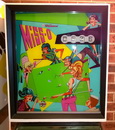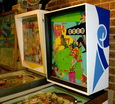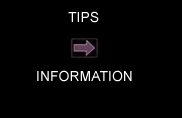CABINET and BACKBOX REPAINTING
Self Adhesive Paper Method
Preparation
Scanning The Original Art
First step is to scan sections (A4 size) of the artwork through Photoshop and files saved as psd files - I use a flatbed scanner with the lid removed.



They are then edited in photoshop and printed on A4 Self Adhesive Photo Paper.


Cabinet Preparation
Next task is to remove the paint.



Remove all existing paint with paint stripper. Sand back and repair all dents, dings in wood ( I only use builders blog for major wood repairs - found it takes too long to dry and does'nt stick to the wood too good. I prefer to use Topcoat Gyprock filler - dries quick, relatively hard and easy to sand ). Apply 2 coats of primer / sealer / u/coat ( I use Taubmans 3 in 1 ) with paint roller, then lightly fine sand. Next apply the White - 2 coats with paint roller ( I use Aqua Enamel - Dulux Antique white USA ).


Applying The Stencils
Cut out and lay the printed scanned art ( A4 print paper ) over the cab / backbox and draw it onto the painted cab / backbox using a lead pencil ( This can be easily removed with a standard pencil eraser ).



Now cut out the printed self adhesive paper and use for masking
Apply Undercoat to edges to reduce paint bleed




Light Blue applied by Roller. Leave for 48 hrs to completely dry







Masked off, then Dark Blue applied by Roller.





Paintwork Completed




PAINT WAS APPLIED BY A ROLLER

